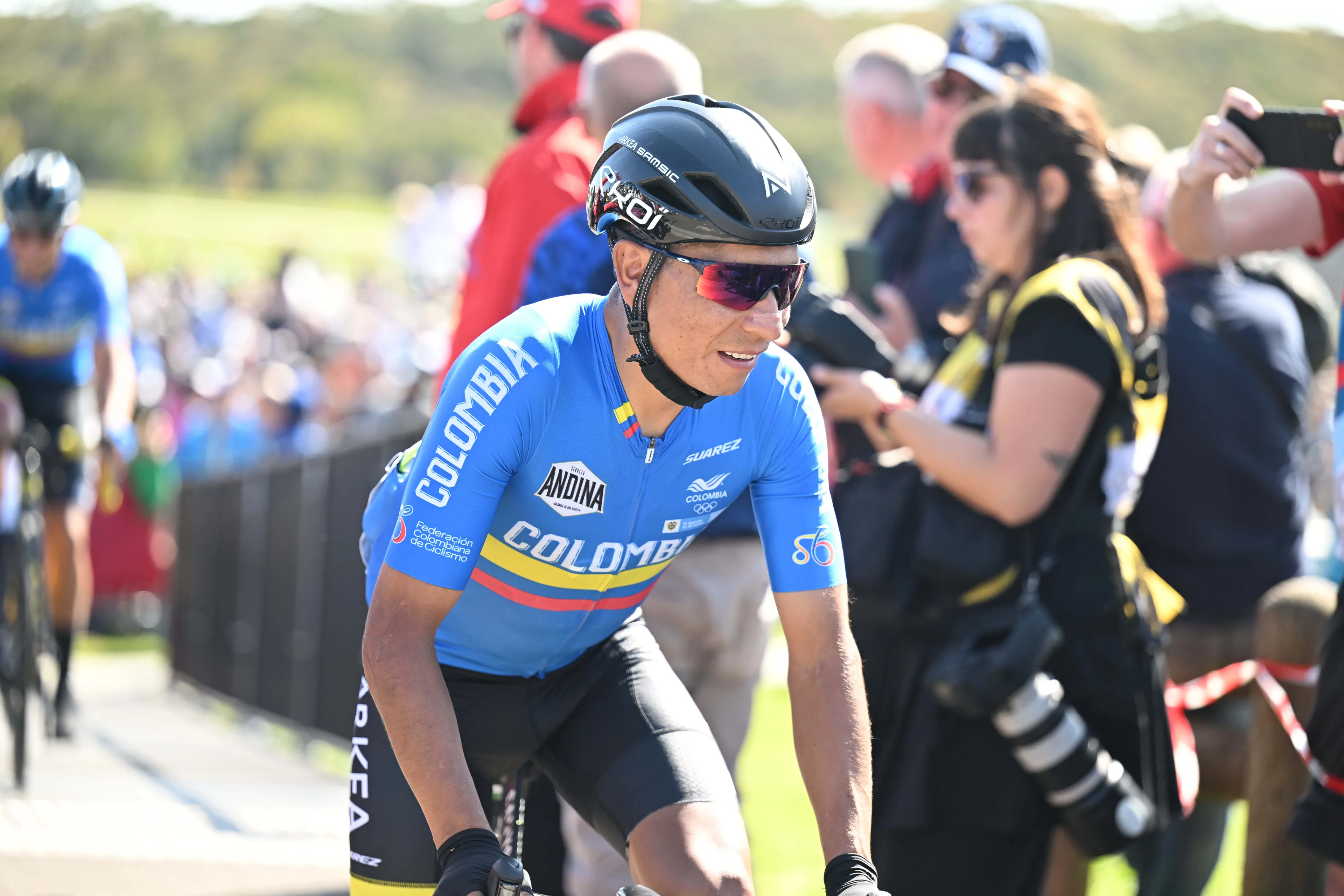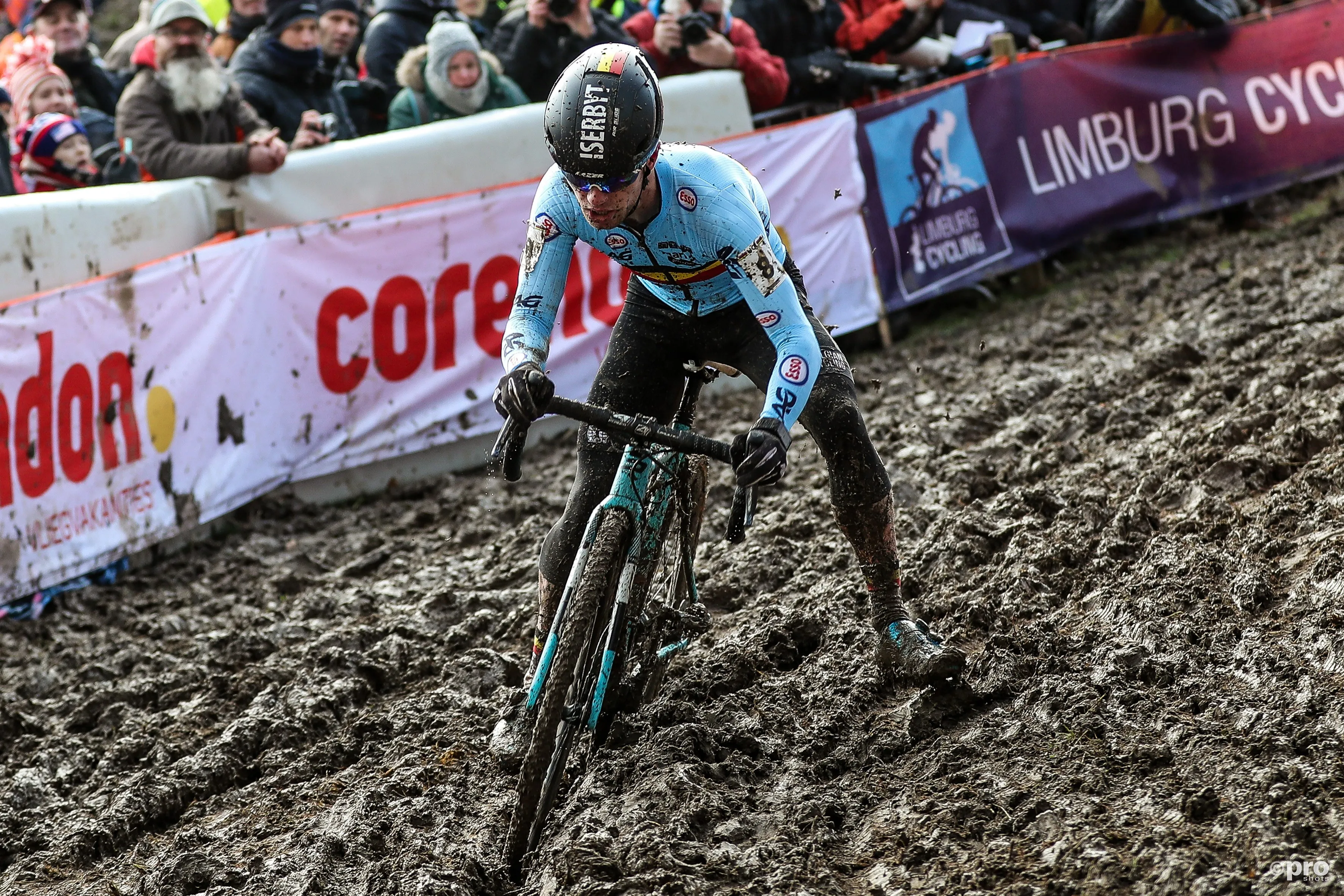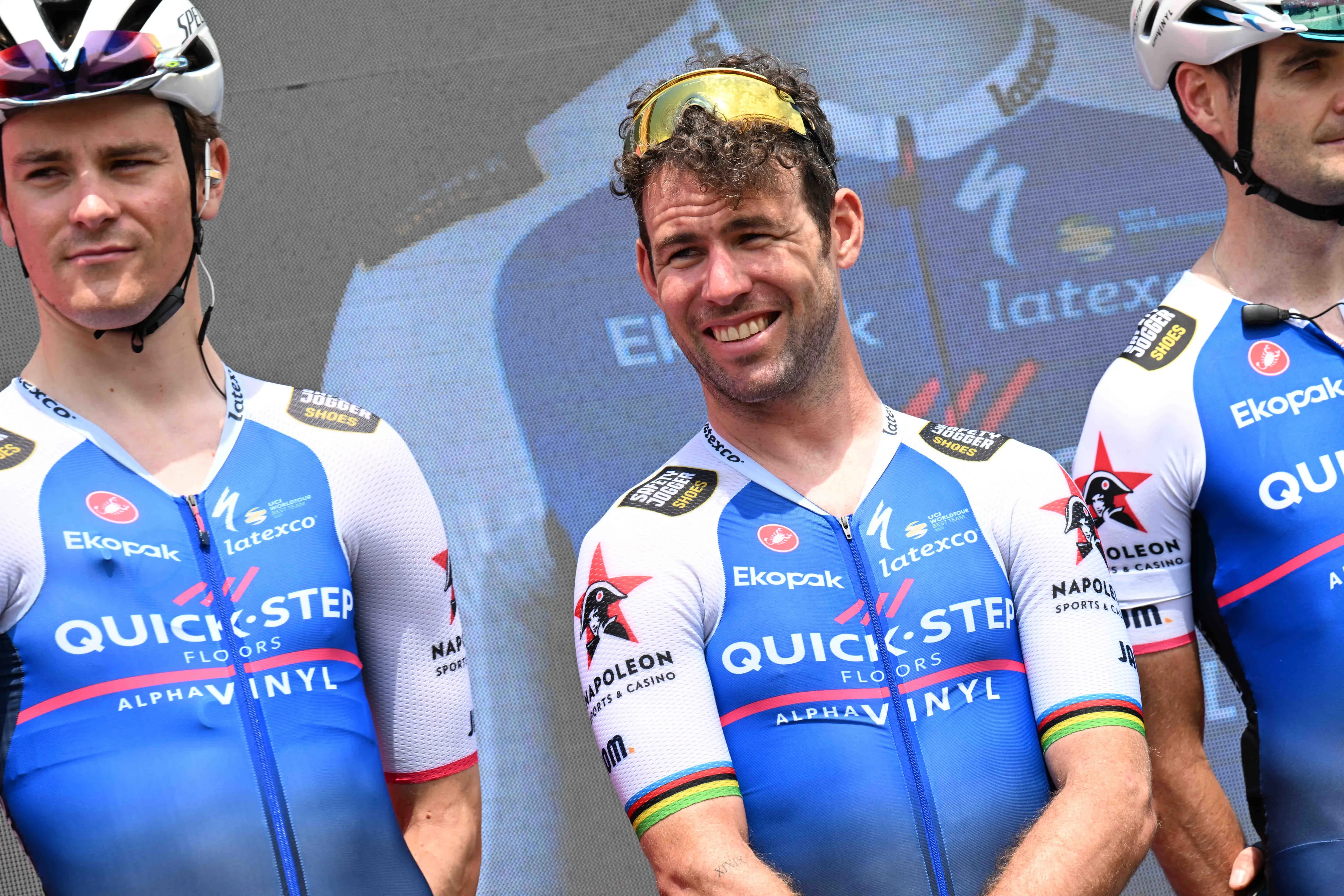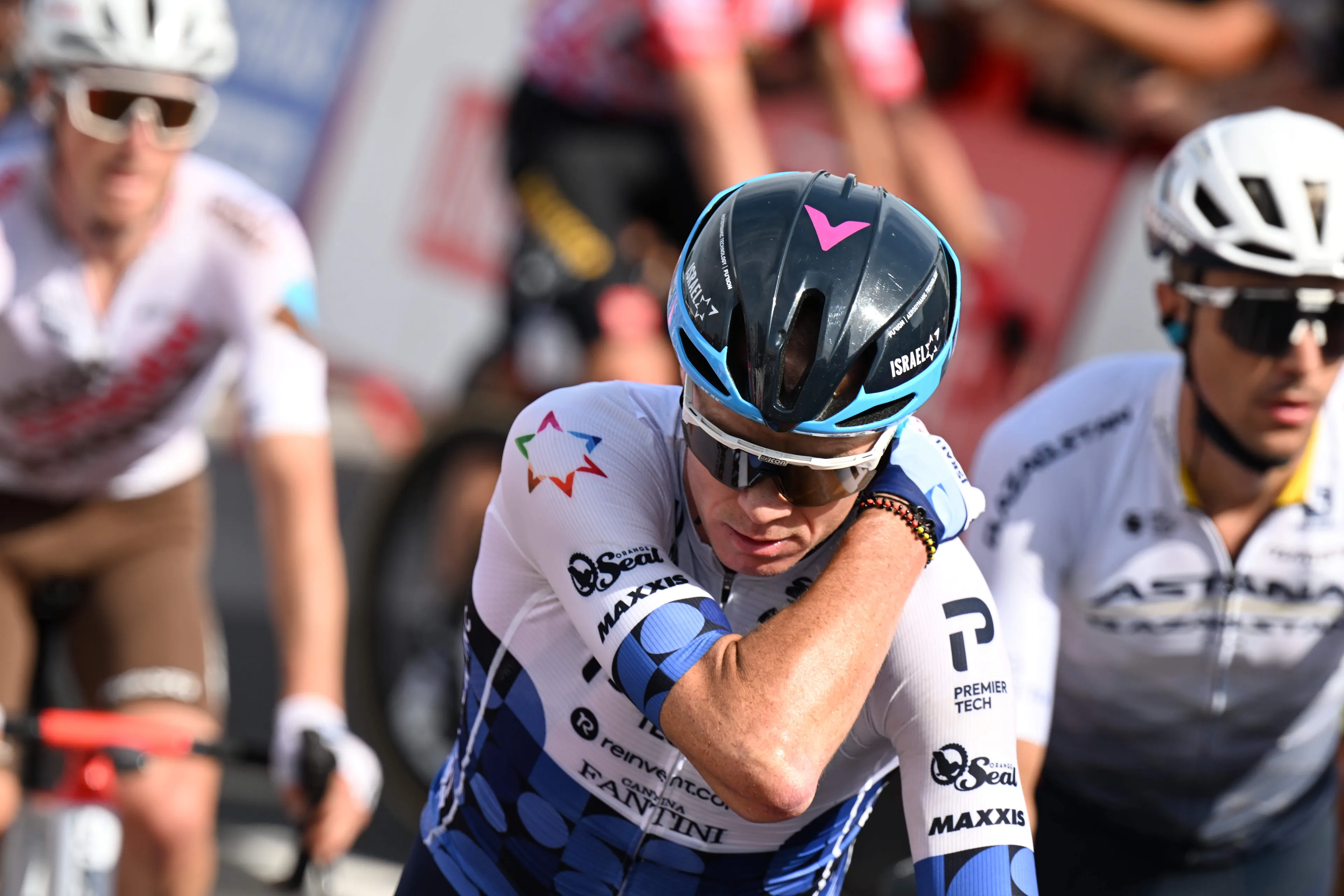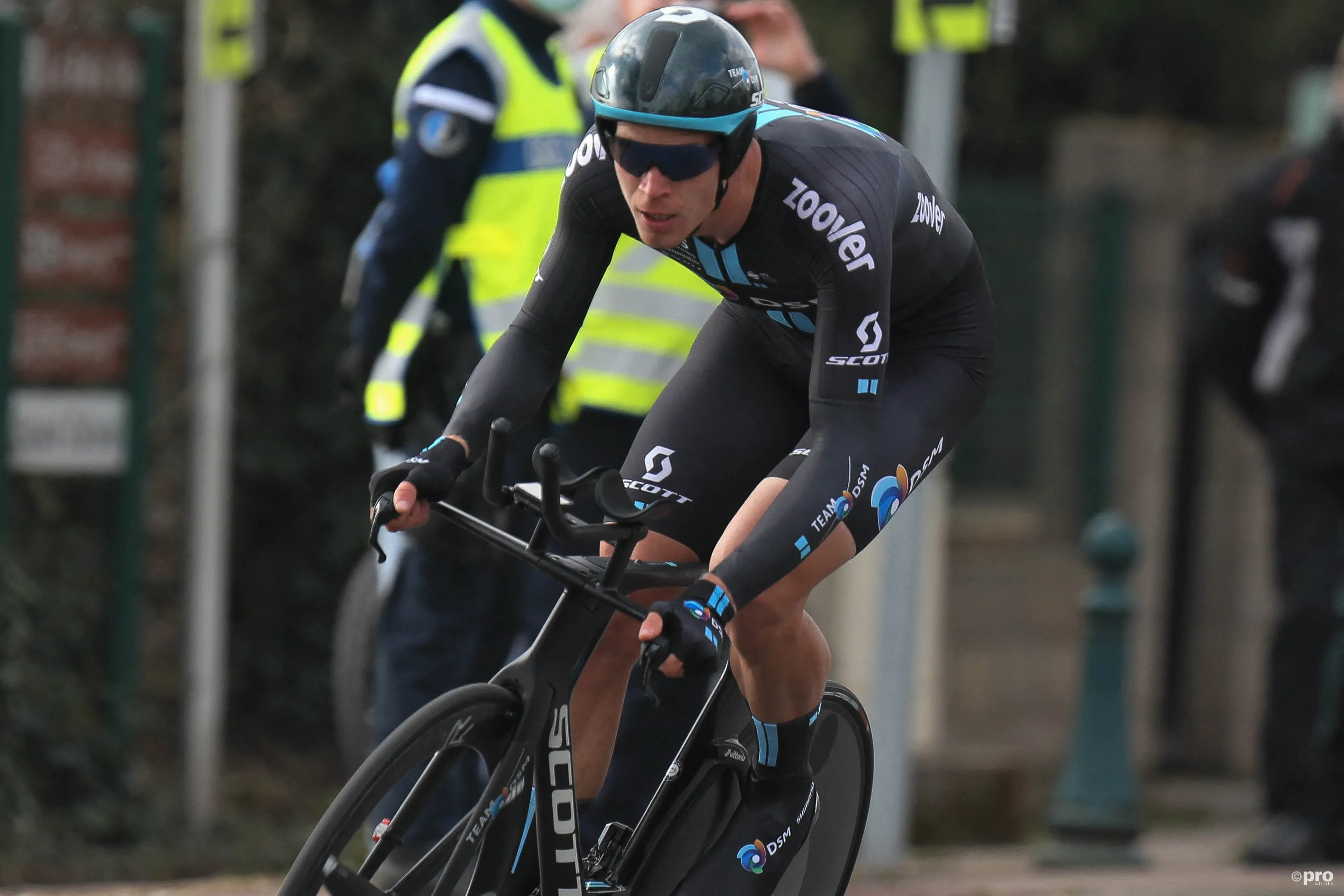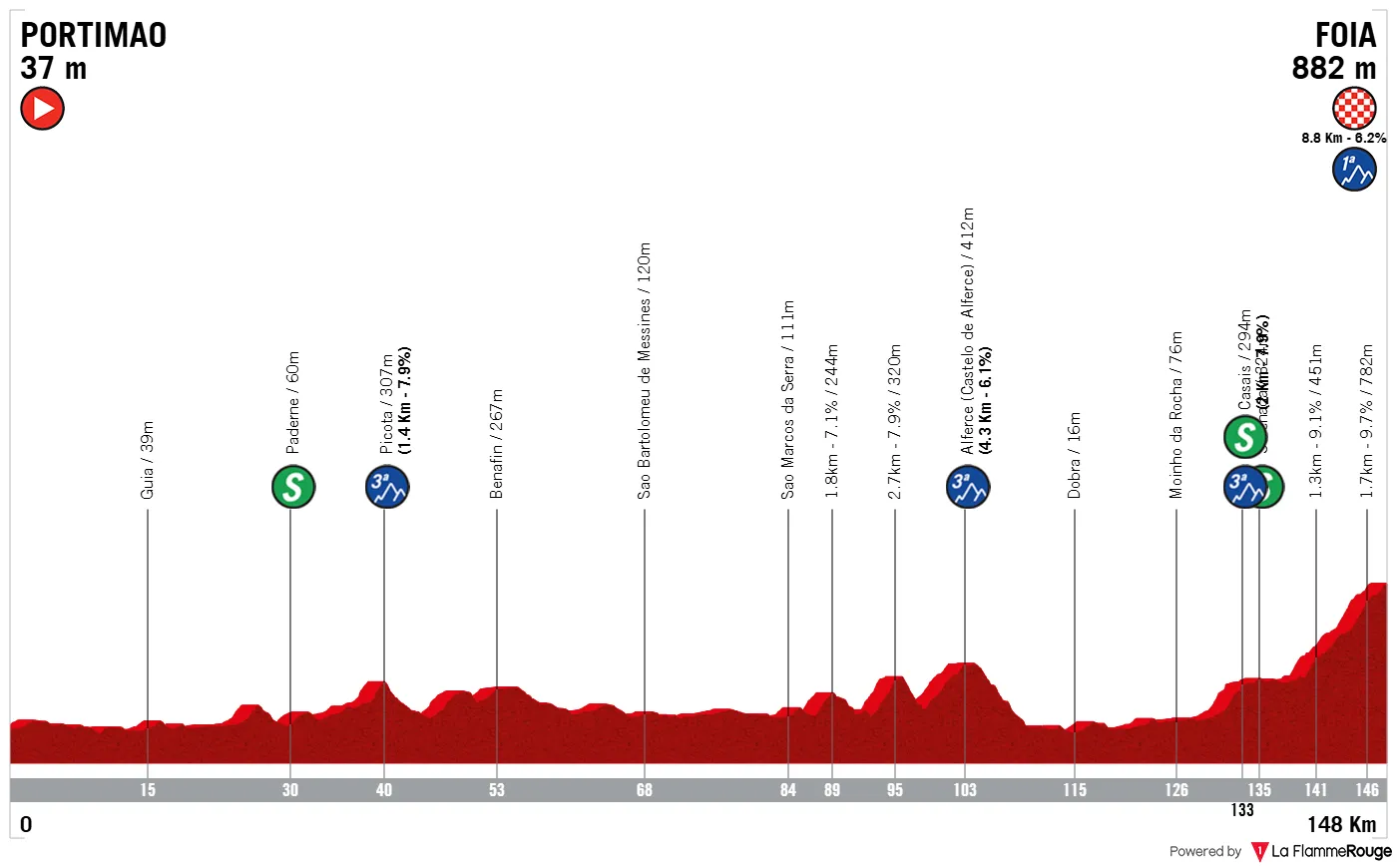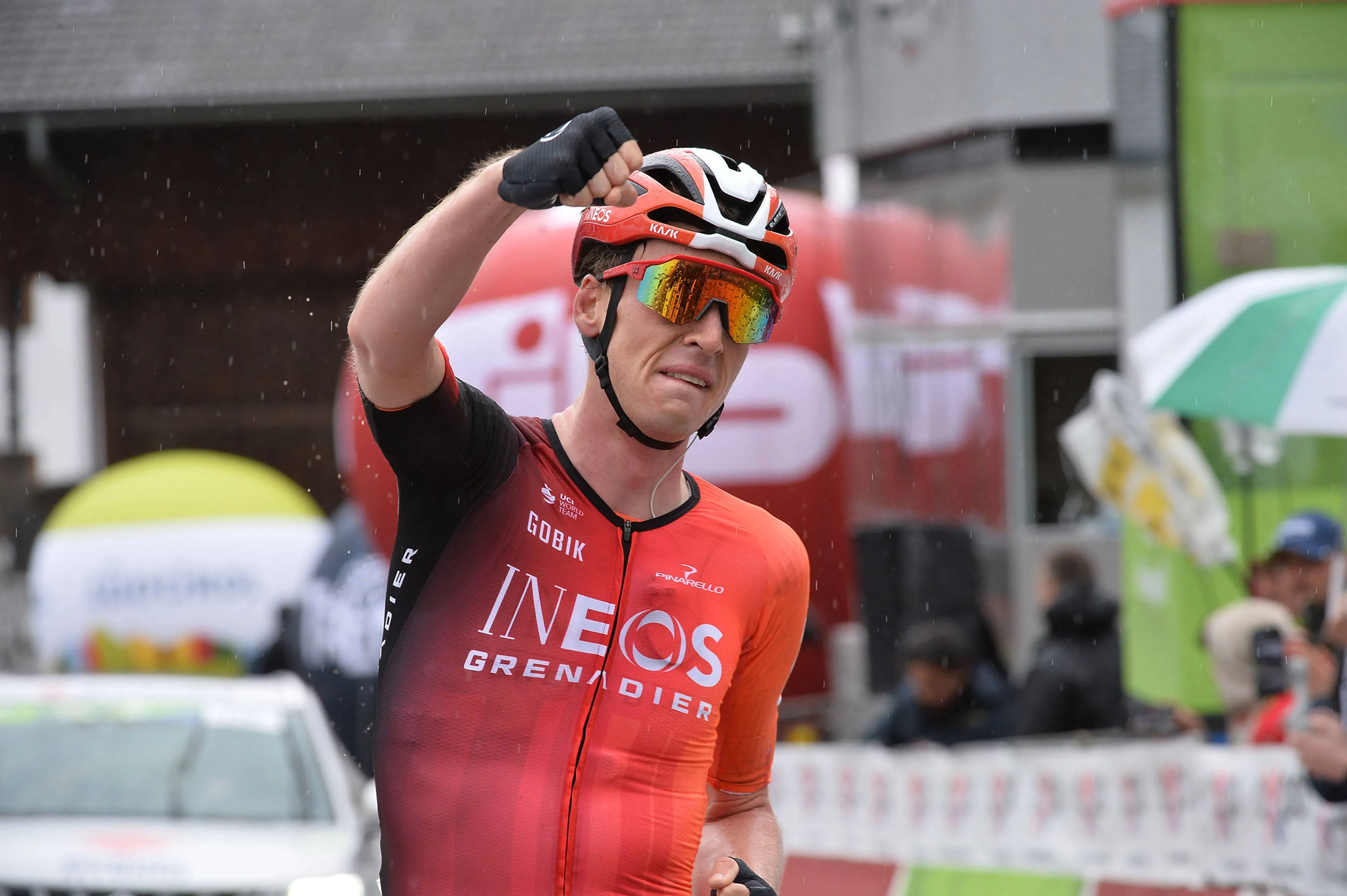INTERVIEW | Israel - Premier Tech nutritionist Gabriel Martins on preparation behind a monument, logistical challenges of Grand Tours and how to fuel a World Tour team personally including Chris Froome
CyclingMonday, 19 December 2022 at 14:13
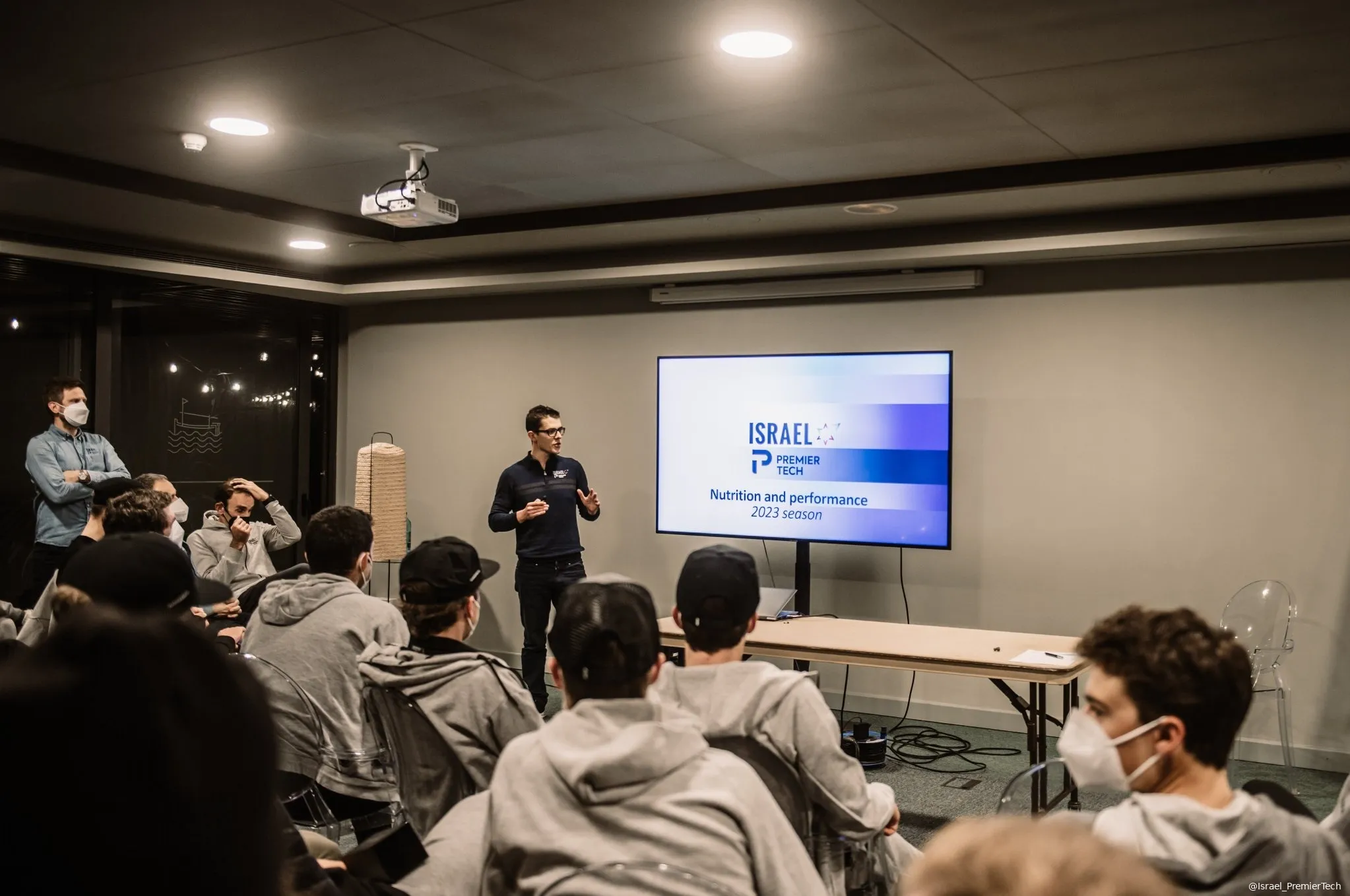
Cycling is a sport that involves unmentionable complexity. Among many of the crucial aspects of the sport lies the riders' diets and fueling strategies for both training and racing.
We have talked to Israel - Premier Tech's Gabriel Martins, who is a leading figure in sports nutrition on many subjects related to what it takes to be able to get the most out of professional riders.
This article is part of a larger interview with Gabriel Martins. You can read the first part by clicking here where Martins discussed the crack at the Tour de France which led Tadej Pogacar to lose the yellow jersey, and also the use of ketones in the peloton.
Gabriel Martins is a sports nutritionist who currently represents Israel - Premier Tech. Although in ProTeam level in 2023, the Israeli team has raced in the World Tour ranks for several years and ever since 2020 Martins has been a key part of the team's staff, taking care of everything between how much riders should eat throughout the races and training.
Aswell as before and after to extreme detail in order to obtain the best performance consistently of all rider, a task perhaps overlooked at times, but one of crucial impact in the sport.

Read also
Martins owns the 'Fuel the Pedal' podcast in which he has for several years discussed topics around sports nutrition.
He has worked as a university researcher in Madrid where he got his first taste of work in cycling alongside the team of former Spanish pro cyclist Eduardo Chozas, and professionally he integrated the Portuguese W52-FC Porto team throughout the 2018 and 2019 seasons.
Martins reveals that at Continental level virtually no teams have their own nutritionists, and teams mostly hire them temporary for specific races.
"Portugal, I can say that it has a very good and different training in nutrition, a training already with some maturity, as compared to other countries," Martins shared in an interview with CyclingUpToDate and CiclismoAldia.
In both the years he was part of it, the team has won the Volta a Portugal, the country's biggest cycling event. Heading into 2020 he already had a meaningful presence in pro cycling, and he tells the story of how he found himself rising into the depths of the World Tour.
Read also
From the contacts I made, I interviewed my colleague from Canada [at the Fuel the Pedal podcast] who was working with them remotely at the time, when she was the club's current nutritionist," he said.
In one of the interviews he happened to be in Girona, where the team's headquarters are, and with the start of the pandemic the team found itself with several staff members unable to be with the team.
"Someone is needed to go to the team's field training," he was told, "it all happened so fast. The opportunity arose, I came and things ended up going well, someone was constantly needed on the ground to support the team and that's how it all started."
Ever since he's been part of the team, managing the fueling strategies to the smallest of details for the likes of Chris Froome, Michael Woods, Jakob Fuglsang, Dan Martin, André Greipel and many more.
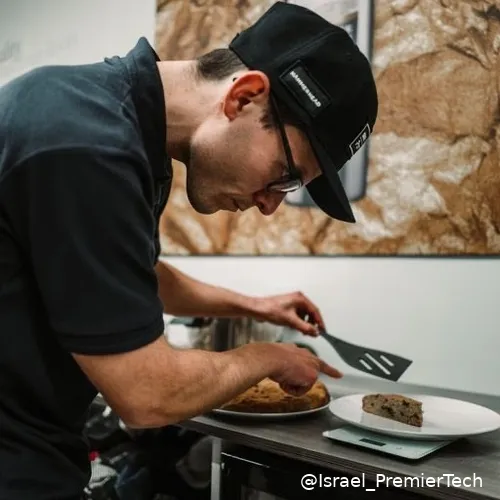
Read also
A job which is made more difficult due to sheer diversity present in the team. In 2022 the team had 33 riders race for it, from 16 different nationalities. Different body types, meal preferences, allergies and work done with previous nutritionists is all taken into account.
"My exact role on the team is not only to take care of the cyclist's health at all times, but above all the cyclists' performance."
"Everything from the moment they are in training to prepare, in blocks to prepare in each race, we have body composition goals, we have weight goals, which then play with the weight ratio, power for each rider and throughout the races also to work directly with the chefs, with the cooks that we have in the team who accompany the races, coordinate the menu with them and from there for each stage for each cyclist according to what is the team's strategy for the day to follow and for the entire race," he describes.
"Define exactly the amounts of what you are going to have for breakfast, what you are going to consume on the bike, of all the brands and products we have, how you are going to recover and the next day, repeat everything again until reach the last stage with the cyclist in the best possible shape."
Read also
It is a daunting task, in which four nutritionists work together to find individual plans for all riders throughout the whole year. Martins' work is present in every single one. "We have
cyclists... who have a very wide range of ages, we have more
veteran cyclists and younger people, that is, this means that some need more
attention than others," he continues.
"Some already know and already have a lot of experience
in what they should eat, in the amounts they should consume, for those the
support is a little less or it is done on a a different, more discreet way,
while other younger riders who still don't have the notion of how to work with
nutrition, we try to give more intense support so that everyone can be at the
same level of knowledge and everyone at the same level of performance," he adds.
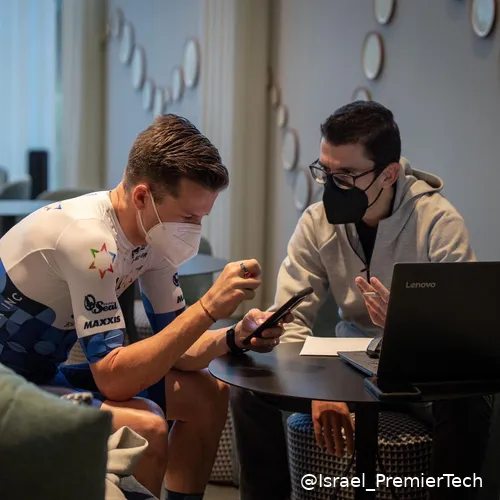
Read also
All riders are different to each other aswell, and he tells of clear differences that emerge from this individual work with each athlete. "It is completely different to prepare Michael Woods than to prepare, for example, a Guillaume Boivin to prepare for a classic...
We have different reference values for different sums of skinfolds, which is what we use as a universal marker of body composition, and then the fuel will also be completely different."
"What riders mainly consume in grams per hour of carbohydrates, which is a measure that we have improved so much and much more research has been done in recent years, in climbers can be, perhaps, between 90 to 100 grams per hour. But we have classics people who can consume 120, 130 or even more grams per hour of carbohydrates.
They also have everything to do with the type of race they will be competing in and nutrition has to follow that, it has to adapt." He has also made it clear that the nutrition used will depend on how much the rider values the race, and his specific role in it.
However if keeping the nutrition of dozens of riders to the smallest of details is already enough of a challenge.
Martins details other tasks he takes part in: "The nutritionist is usually included in the feed zones, it accompanies the car and the bidons too, and when that part is over, I go directly to the hotel and I have to be doing my calculations on the laptop so that when everyone comes home from the race they know exactly what they have to do eat to recover."
Another complex task involves making sure the riders can get their feeding efficiently throughout the races. "If you talk about logistics, you have to coordinate, for example, a Milano-Sanremo that ends up having many supply points and the staff, the staff has to be distributed throughout the entire race to distribute the bottles and musettes with the food," he says.
"There is at least one race that you start to prepare and talk about two weeks before, or a month before, on a logistical level, what is left to take for that same race, from vehicles, from our part of quantity of supplements , what to bring, how many bottles, how many isotonic drinks, how many other types of drinks, how many gels, bars.
And then we have to coordinate, accordingly, how much staff we have, how many supply points we can and should have, if we have a specific objective in the race."
"There is at least one race that you start to prepare and talk about two weeks before, or a month before, on a logistical level"- Gabriel Martins, nutritionist at Israel - Premier Tech
Read also
And although everything can be planned weeks ahead, the logistical problems can turn into nightmares at times as was the case in recent Grand Tours - due to the transfer between different countries, as he explains: "For example, having a vehicle that could not circulate in certain areas and having to resort to renting vehicles, kitchen trucks not being part of one of the countries...
All the logistics of, in some cases, having to fly, as was the case back to Italy, which we then had to fly to go to Sicily and then start the Giro from there."
As for the riders, the biggest challenges in the Grand Tour is "ensuring that the cyclists maintain their health and are able to constantly recover until the end of the Grand Tour."
He has his influence on the riders' recovery program which includes "massage, application of cold and heat," he explains. The difference in weather conditions also adds another layer of math behind Martins' calculations, which varies from race to race.
Read also
An interesting questions rises from riders who come from teams where they've achieved their best results. Chris Froome who was signed from INEOS Grenadiers and has accomplished more than 99.9% riders in the peloton has certainly got his past nutritional strategy right, but what happens when a big figure changes teams?
"The objective is to always be redesigned, obviously, each cyclist is like any patient who is a nutrition consultation," Martins answers. "We have to take into account the habits that that person and that athlete had until now and not spoil what it's already well done."
"If he
notices that a certain drink, a certain concentration of gel, a certain
concentration of sodium [works for him], I always have to take that into account. I don't want to say that he
has to use the same strategy that he used in the previous teams where he was,
but we can also learn from that...
So, in this case, we have to be aware of
saying let's not spoil what is well done, if that works for you, let's try to
use it," he continues. There is always the nuance that we have different products. There are many
products, so there is always a benefit for the cyclist to train with these same
products, to train the intestines so that they can digest them better.
It
is something that we always try to adapt to what is reality of the team, what
is the reality of the products that the team has so that the cyclist can do
what he feels works for him, but maybe with other different products."
Read also
Martins brings forward a point aswell that is not spoken in the world of cycling, that he feels passionate about. "Something
that is missing is that the UCI recognizes our profession. It's something people
probably don't know, but if every year we have to go to a race and ask for our
license, we have to sign up as masseuses, there is no category of nutritionist," he explains.
"That could be something that could to contribute in the long term so that the
cyclist began to be better integrated, better seen and that all teams, whether
at the Pro Team level, which was the World Tour level, had more and better
nutritionists and invested more in this area," he concluded.
Perhaps giving exposure to people like Gabriel will have a snowball effect that will enhance the staff's importance in cycling, and help teams grow stronger in the future...
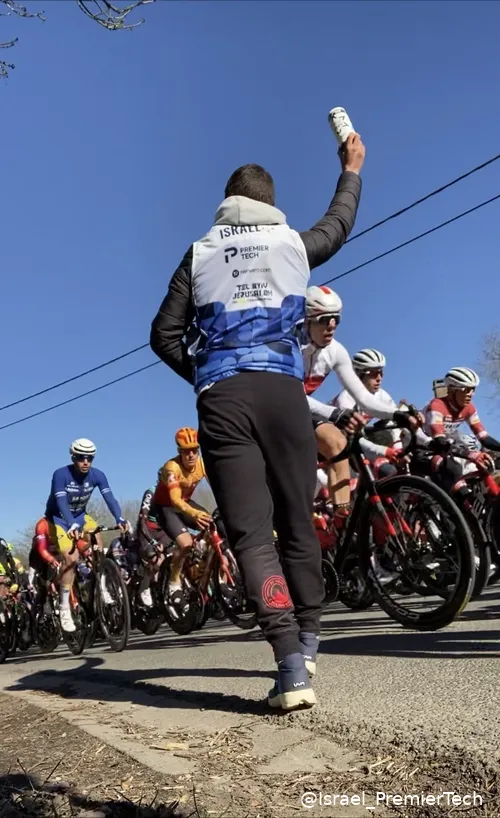
claps 0visitors 0
Just in
Popular news
Latest comments
- If I were Johan Bruyneel, I would be careful what I wish for... There is a high likelihood that revealing your side of the story will actually make things WORSE for you! Also, I suspect Lance will make himself look like the victim and throw you and everyone else under the bus!Pogboom19-02-2026
- As per a great many on the world stage...you must be beside yourself amongst them all!
 leedorney19-02-2026
leedorney19-02-2026 - Well, you might be right because the overlap is really quite small even though the individual audiences might be more significant. BUT if you’re trying to say there’s little chance anyone not totally aligned with these characters’ life choices is going to sponsor their ventures, yes, totally agree.Mistermaumau19-02-2026
- I'm not
 leedorney19-02-2026
leedorney19-02-2026 - And the Europeans - Manolo Saiz Once team manager, the Festina team, do you want me to go on.. ?
 leedorney19-02-2026
leedorney19-02-2026 - It's sad that Lance/Johan has had to tolerate this all these yrs, they should be admired imo - all they did was organise a brilliant system better than the Europeans FACT, again who wasn't on anything back then properly - everyone, reportedly.. yet the fact is who actually knows, pro cycling and pro sport in general will never shake the doper aspect fully
 leedorney19-02-2026
leedorney19-02-2026 - Even less chance of getting me to watch that than Melania which my other half would maybe twist my arm into watching if she wanted to fall asleep without brain activity.Mistermaumau19-02-2026
- What total BS You were both dictating the narrative for the more than 10 years before you had to change it. You had PLENTY of time to tell your story or correct others who got it wrong, you only « corrected » them when they were getting it ki d of right. AND, you wouldn’t be asking to tell anything now if things had stood the way they were. The ONLY thing you regret is getting caught, just like all those now part of the Epstein collateral. Cheap-lay (that’s my Clavicularistic replacement for a four lettered F-word).Mistermaumau19-02-2026
- Imagine Pogi being in this race. He would motivate Del Toro "common, common...let's go, let's leave Remco even more behind." Of course Pogi would go ahead and catch Tiberi. 1) Pogi... 2) Tiberi... 3) Del Toro... Remco would be behind more than 3 min. Pogi being at the UAE (his own Tour) would have crushed Remco mentally, like in 2025. Poor little Belgian child.Mou-Cro-HR19-02-2026
- Slowly and slowly Remco is fading. He's an over rated cyclist.Mou-Cro-HR19-02-2026
Loading
Write a comment
